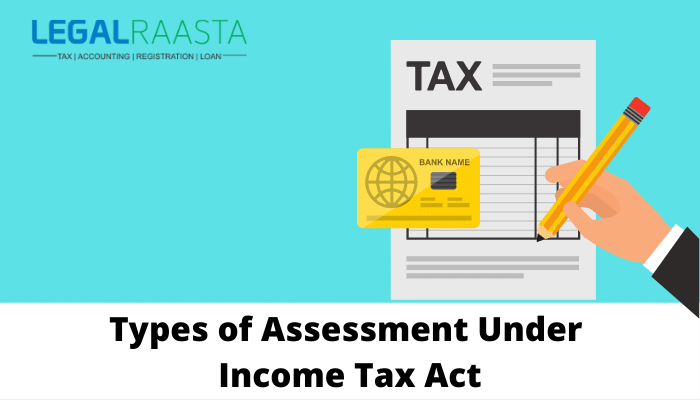Income Tax Surcharge Rate & Marginal Relief
Are you in one of the higher income tax brackets, such as the 30 percent top rate? – If you responded yes, your Income Tax liability will be subject to an extra surcharge. To put it another way, an income tax surcharge is an additional tax imposed on people who earn more than a specific amount.
With a population of over 1.3 billion people, India is a massive country. India has a progressive tax system, with higher rates for the wealthy and lower ones for the poor. With the surcharge provision, the Indian government ensures that the wealthy contribute more to income taxes than the poor. India also offers marginal surcharge relief to a limited group of taxpayers, allowing them to avoid paying the high rate of tax. Let’s take a closer look at how India executes these provisions:
Income Tax Surcharge
A premium on top of income taxes is known as an income tax surcharge. It’s an additional tax on people who earn a lot of money every year.
Rates of surcharge for various taxpayers
The Income Tax Act of 1961 imposes various income tax rate surcharges based on the taxpayer’s filing status.
| Taxpayer | Income limit | Surcharge Rate on the amount of income tax |
| Artificial Judicial Person/HUF/AOP/BOI/ Individual | Net income is greater than Rs.50 lakhs but less than Rs.1 crore. | 10% |
| Artificial Judicial Person/HUF/AOP/BOI/ | Net income is greater than Rs.1 crore but not more than Rs.2 crore. | 15% |
| Artificial Judicial Person/HUF/AOP/BOI/ | Net income is greater than Rs.2 crore but not more than Rs.5 crore. | 25% |
| Artificial Judicial Person/HUF/AOP/BOI/ Individual | The company’s net income exceeds Rs.5 crore. | 37% |
| Local authorities/Co-operative Society/Firm/LLP | The company’s net income exceeds Rs.1 crore. | 12% |
| Domestic Company | Net income is greater than Rs.1 crore but less than Rs.10 crores. | 7% |
| Domestic Company | The company’s net income exceeds Rs.10 crores. | 12% |
| Foreign Company | Net income is greater than one crore rupees but not more than ten crore rupees. | 2% |
| Foreign Company | The company’s net income exceeds Rs.10 crores. | 5% |
Marginal relief for individuals
Case 1: A 10% surcharge will be charged on the taxable income at source if the total income* is greater than Rs.50 lakh but less than Rs.1 crore.
Certain taxpayers would obtain a marginal advantage up to the difference between the extra tax paid (including surcharge) on their income exceeding Rs.50 lakhs and the amount of income that exceeds Rs.50 lakhs, according to income-tax laws.
Assume a person’s total income in FY 2020-21 is Rs.51 lakhs.
- He will be obliged to pay a total tax of Rs. 14,76, 750 (excluding of a 10% surcharge on the total tax calculated).
- His tax liability would have been Rs.13,12,500 if he had only earned Rs.50 lakhs (inclusive of the cess).
- Isn’t it unjust to the individual? For earning an extra Rs.1 lakh, he will pay an income tax of Rs.1,64,250. So that there are no overpayments, the tax burden should be reduced.
- The individual will be free from paying any additional taxes above Rs. 13,12,500 (Rs. 1,64,250) because their excess tax due on higher-income surpasses that amount.
- There would be a margin relief of Rs.64,250 (Rs.1,64,250 minus Rs.1,00,000).
- As a result, on revenues of Rs. 51 lakhs, the income tax due is projected to be roughly Rs. 14,12,500.
Case 2: Where total revenue is greater than Rs. 1 crore but less than Rs. 2 crore
- To the amount of income tax that must be paid, a 15% surcharge will be added. The difference between the excess tax payable (including surcharge) on income beyond Rs.1 crore and the amount of income above Rs.1 crore is handed to the taxpayer as marginal relief.
- For example, if an individual’s total income in a fiscal year is Rs.1.01 crore, he will owe tax plus a 15% surcharge on the tax computed, resulting in a total tax bill of Rs.32,68,875.
- However, if he had only made Rs.1 crore, he would have owed Rs.30,93,750 in taxes. For earning an extra Rs.1,000,000, he will pay Rs.1,75,125 in income tax.
- As a result, the individual will receive a tax reduction equivalent to the difference between the excess tax payable on higher income (Rs.1,75,125) and the amount of income over Rs.1 crore (Rs.1,75,125) (Rs. 1,00,000, in this case).
- The amount of marginal assistance will be Rs.75,125 (Rs.1,75,125 minus Rs.1,000,000.00).
Borderline relief for enterprises
If your total income exceeds Rs. 1 crore, you would have to pay a 12 percent cargo on your income duty. A borderline relief would be granted to taxpayers with total income above Rs. 1 crore, meaning that the income duty outstanding ( including cargo) on the advanced income can not exceed the income duty outstanding on Rs. 1 crore by further than the quantum of income that exceeds Rs. 1 crore.
To put it another way, if a company’s total income is Rs.1.01 crores, it’ll oweRs. in duty, plus a cargo of 12 on the duty reckoned. The duty birthright would have been onlyRs. if the total profit had been only Rs. 1 crore. As a result of generating redundant Rs., it’ll have to pay Rs. in income duty.
As a result, the company will be eligible for a borderline duty reduction equal to the difference between the redundant duty payment on advanced income (Rs.) and the quantum of income exceeding Rs. 1 crore (Rs.) (Rs., in this case). ARs. small relief would be handed (Rs. minus Rs.).
Borderline relief for companies
Case 1 A 7 cargo will be added to the income duty due when a domestic company’s total income surpasses Rs. 1 crore but doesn’t exceed Rs. 10 crores.
Also, transnational pots with a total income of further than Rs. 1 crore but lower than Rs. 10 crore would be charged a 2 cargo on their income duty liability.
Companies with a total income of further than Rs. 1 crore but lower than Rs. 10 crores will be eligible for borderline relief, which means that the income duty outstanding on the advanced income ( including cargo) can not exceed the income duty outstanding onRs. 1 crore by further than the quantum of income that exceeds Rs. 1 crore.
Case 2 A cargo of 12 will be assessed to the income duty due if a domestic company’s total income exceeds Rs. 10 crores.
Also, foreign enterprises with total income surpassing Rs. 10 crores will face a 5 cargo on their income duty liability.
Only companies with a total income of further than Rs. 10 crores would be eligible for borderline relief, which means that the income duty outstanding ( including cargo) on the advanced income can not be further than the quantum of income that exceeds Rs. 10 crores.
Frequently Asked Questions
Is it possible for an individual to seek borderline relief?
Yes, everyone who’s charged a cargo is eligible for a small quantum of relief.
When will the cargo for individualities be enforced?
Cargo would be applied to individualities with a net total income of further than 50 lakhs.
Also Read,
NRI Status and Taxation
How to e-file Form 15G & upload form-15g online









